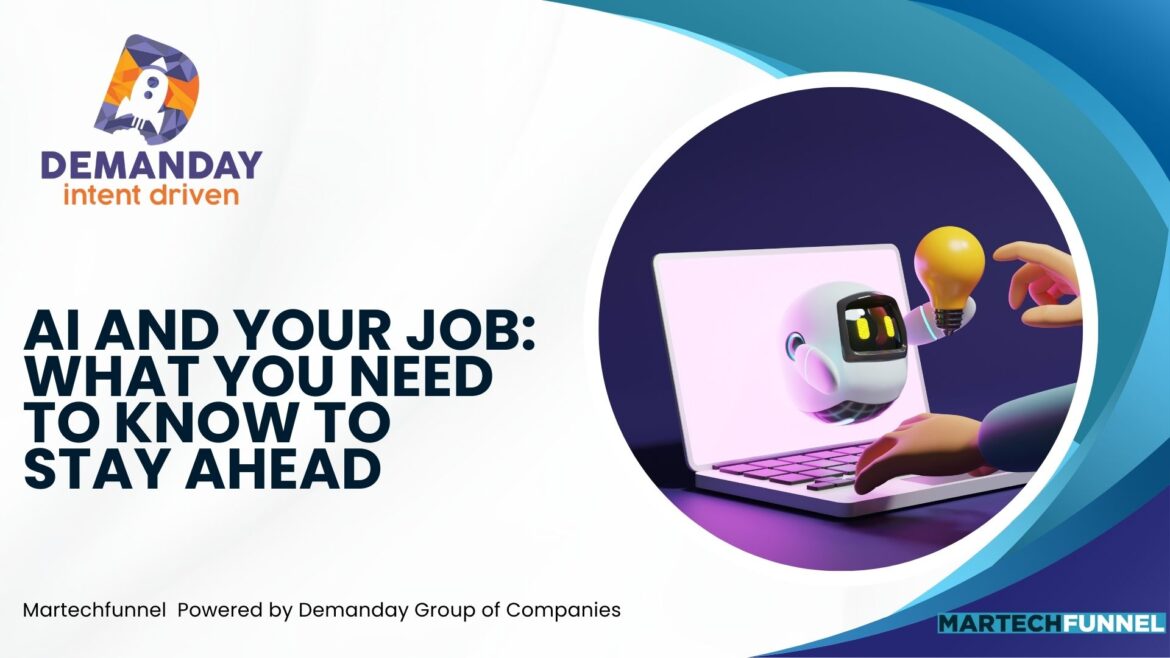Table of Contents
You’ve probably heard a lot about artificial intelligence (AI) and how it’s reshaping industries. But what does AI mean for your job? Will it make your work easier, or will it replace certain tasks altogether? Let’s break down what you need to know to stay ahead in this AI-powered world.
1. AI Isn’t Here to Take Your Job—It’s Here to Help You Do It Better
When people think about AI in the workplace, they often jump to the idea of robots taking over. But here’s the truth: AI is less about replacing jobs and more about making your work life easier. Automation can handle repetitive tasks, freeing you up for more creative and strategic thinking.
- The Number You Should Know: The World Economic Forum projects that by 2025, automation and artificial intelligence will eliminate 85 million jobs, but they will also generate 97 million new positions that focus on human skills.
- What This Means for You: Instead of fearing AI, think of it as a tool to help you work smarter, not harder. By leveraging AI to handle routine tasks, you’ll have more time to focus on the big-picture goals that truly move the needle.
2. The Skills That Matter Most in an AI-Driven World
With AI handling some of the more mechanical parts of your job, you might wonder which skills will be most valuable. The answer? Soft skills. Creativity, problem-solving, and emotional intelligence are all areas where humans outperform machines.
- Stats to Think About: According to a 2023 LinkedIn study, 92% of hiring managers believe soft skills are equally as vital as technical skills, if not more so the age of AI.
- How This Impacts You: Now’s the time to sharpen your soft skills. AI can process data, but it can’t think creatively or communicate with empathy. By focusing on these uniquely human abilities, you’ll keep your role relevant.
3. AI Can Be Your Assistant
Imagine having an assistant that’s available 24/7, never takes a break, and can process massive amounts of data in seconds. That’s what AI can do for you. From scheduling meetings to analyzing trends in your industry, AI tools can streamline your day-to-day tasks.
- Here’s a Fact: A McKinsey study found that 60% of all jobs could see 30% or more of their activities automated by AI. This means less time spent on administrative work and more time focusing on tasks that require your expertise.
- For You: Start exploring AI-powered tools that can help with your workload, like scheduling apps, data analysis platforms, and customer service chatbots. These tools let you concentrate on what is important.
4. Upskilling: Preparing for an AI-Enhanced Job Market
As AI takes on more responsibilities, upskilling becomes essential. This involves constantly picking up new abilities and staying current with AI developments. Acquiring these talents will make you indispensable, from comprehending AI’s workings to being able to collaborate with it.
- The Numbers Speak: According to Gartner, by 2024, 50% of all employees will need to be reskilled to handle AI’s impact on the workplace.
- What This Means for You: Consider enrolling in courses that teach AI fundamentals, data analysis, or digital marketing. The more familiar you are with AI, the better positioned you’ll be in the evolving job market.
5. AI Is Changing How You Work, Not Just What You Do
Not only is artificial intelligence redefining employment roles, but it is also altering how we work. From remote collaboration to virtual brainstorming sessions, AI-powered tools are making it easier to work more efficiently. Imagine being able to brainstorm with colleagues from around the world in real-time or having AI algorithms predict market trends for you.
- Recent Insight: A study by PwC found that 54% of companies are now using AI to increase workplace efficiency.
- For You: Embrace the flexibility AI offers. Whether you’re working remotely or using AI-driven platforms to collaborate, these tools are helping to redefine productivity and collaboration.
6. Human Interaction Is Still Important in an AI-Driven World
While AI is great at handling data and automation, it’s important to remember that the human touch still matters. Customers still want to connect with real people, and complex problem-solving often requires human insight. AI can assist, but it can’t replace your unique perspective and emotional intelligence.
- Did You Know?: According to a study by MIT, 78% of customers prefer interacting with humans for complex issues, despite the rise of AI-driven customer service.
- What This Means for You: Don’t underestimate the power of your interpersonal skills. While AI can handle data, you can connect with others and provide empathetic service that will keep you indispensable in your role.
AI and You—A Partnership for Success
AI isn’t something to fear—it’s a tool you can use to make your job easier, more efficient, and even more rewarding. You may prepare for a future powered by artificial intelligence (AI) by learning how AI functions, acquiring essential soft skills, and maintaining an open mind.

